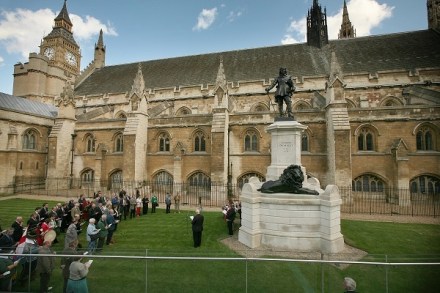John Milton’s ambiguous love for Oliver Cromwell – Discovering poetry
‘To Oliver Cromwell’ Cromwell, our chief of men, who through a cloud Not of war only, but detractions rude, Guided by faith and matchless fortitude To peace and truth thy glorious way hast ploughed, And on the neck of crowned fortune proud Hast reared God’s trophies and his work pursued While Darwen streams with blood of Scots imbrued, And Dunbar field resounds thy praises loud, And Worcester’s laureate wreath; yet much remains To conquer still; peace hath her victories No less than those of war; new foes arise Threatening to bind our souls in secular chains: Help us to save free conscience from the paw Of hireling wolves whose gospel

















